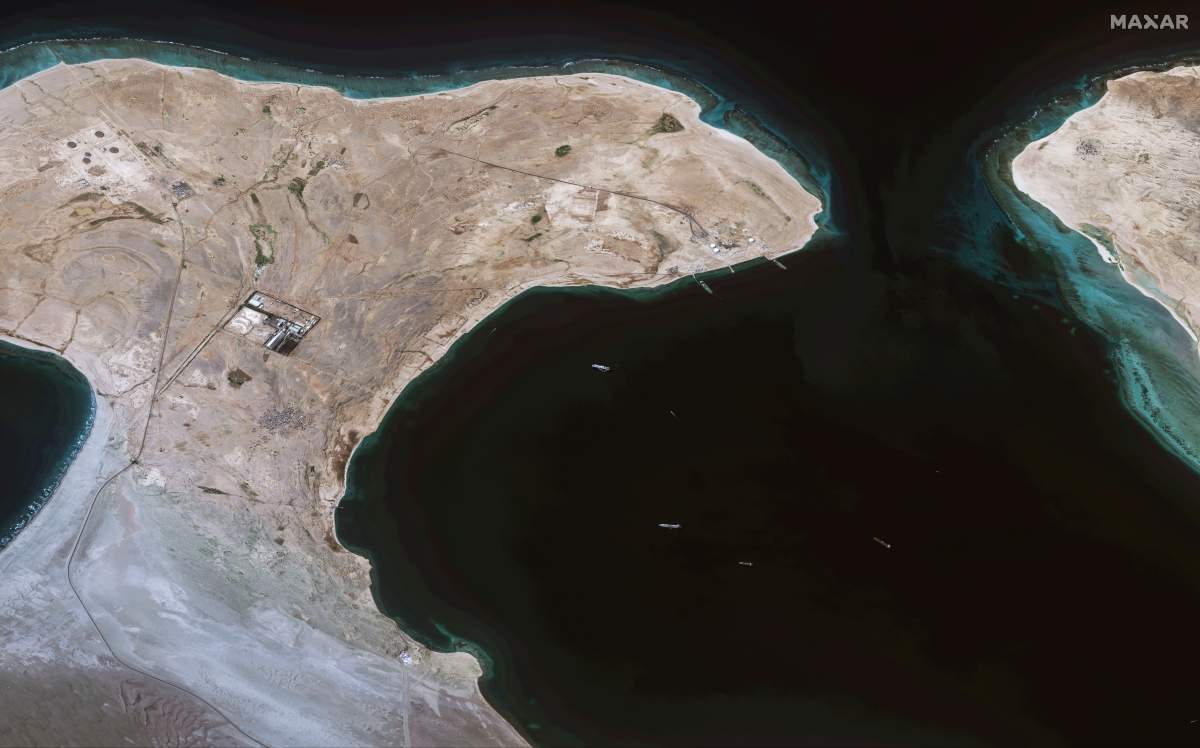Strikes against Houthi targets by the United States and the United Kingdom in Yemen are the “consequences” of the rebel group’s attacks in the Red Sea, Canada says.

Canada joined Australia, Bahrain and the Netherlands in providing support for the strikes. Foreign Affairs Minister Melanie Joly and Defence Minister Bill Blair said in a statement Friday that Canadian Armed Forces (CAF) personnel deployed with U.S. Central Command supported the operation.
“Canada condemns the reckless Houthi attacks against commercial ships and crew operating in the Red Sea. They directly impact the flow of food, fuel, humanitarian assistance and other essential commodities to populations around the world, which can affect the global economy,” the ministers said.
“We call on Houthis to cease their attacks immediately, and reiterate that they bear the consequences of their actions. We remain committed to working with our partners in the Middle East to help advance sustainable peace and security in the region.”

A CAF spokesperson told Global News the force’s contributions consists of two planners and one intelligence analyst who specializes in the region. Prime Minister Justin Trudeau told reporters in Guelph, Ont., Friday that Canada did not have “operational assets” involved in the strike.
“The international community had a responsibility to step up, as laid out by UN Security Council resolutions, and we support the very targeted actions taken by military assets from the U.K. and the U.S.,” he said at a press conference in Toronto.
The Houthis are an Iran-backed rebel group that has been attacking western commercial and military vessels in the Red Sea in opposition to Israel’s military actions in Gaza.
The attacks have impacted global shipping, as the Red Sea is a vital trade route linking Asia to Europe and North America. Close to 15 per cent of the world’s goods flow through the sea.

The strikes targeted Houthi-connected facilities storing the rebel group’s combat drones and ballistic and anti-ship missiles, as well as air defence systems and logistical hubs in Yemen, U.S. Defense Secretary Lloyd Austin confirmed in a statement.

Get daily National news
More than 16 locations were hit by over 150 munitions, the Pentagon said Friday.
Army Lt.-Gen. Douglas Sims, director of operations for the U.S. Joint Staff, said Friday the defence department is “very confident” the strikes were effective in degrading the Houthis’ ability to carry out further attacks in the Red Sea.
“We feel very confident about where our munitions struck,” he said in a statement provided by the Pentagon.
The British Defence Ministry said it directly conducted precision strikes on two facilities that had been used by the Houthis to launch drones and missiles.
“In planning the strikes, particular care was taken to minimize any risks to civilians, and any such risks were mitigated further by the decision to conduct the strikes during the night,” the ministry said in a statement.

The strikes came two days after what the U.S. and U.K. was the largest barrage of Houthi missiles and drone attacks on ships in the Red Sea since they began.
That attack was launched despite a stern warning sent by the U.S., U.K., Canada and several other nations last week to the Houthis to stop targeting vessels or face consequences.
Joly and Blair said the strikes were consistent with the UN Charter.
“Despite multiple strong warnings from the international community, Houthi attacks in the Red Sea have continued, including against U.S. Navy vessels,” they said.
“These actions follow the adoption of UNSCR 2722 by the UN Security Council on January 10, 2024, demanding the Houthis end attacks on merchant and commercial vessels.”
The Houthis’ military arm said in a statement on Friday the strikes in Yemen “will not go unanswered and unpunished.”

Retired Maj.-Gen. Denis Thompson, now a fellow at the Canadian Global Affairs Institute, says he doesn’t consider the airstrikes as an escalation of the conflict in the Middle East, but rather an effort to deter future attacks.
“This isn’t going to be the only attack, because I don’t think a single attack on the Houthis is enough to shut them down,” he told Global News in an interview.
Canada will likely be involved in any future strikes on Houthi targets, he added.
Opposition Leader Pierre Poilievre said in a Friday press conference of his own that he agrees the strikes were necessary to counter the threat posed by the Houthis.
Poilievre said the Houthis were a proxy for the Iranian government, referring to them as a “Tehran-backed pirate outfit.”
But NDP MP Heather McPherson, the party’s foreign affairs critic, said she is concerned about escalation in the Middle East. She told Global News the strikes will bolster the Houthis’ narrative that they are pursuing a “greater good” with their attacks in the Red Sea.
“We need to think about, what is the strategy to make sure that Canada is playing a role that results in more peace around the world, that results in more peace in the Middle East,” she said. “And I don’t think what we saw yesterday is something that’s going to result in that.”
— with files from Global News’ David Akin and the Canadian Press










Comments